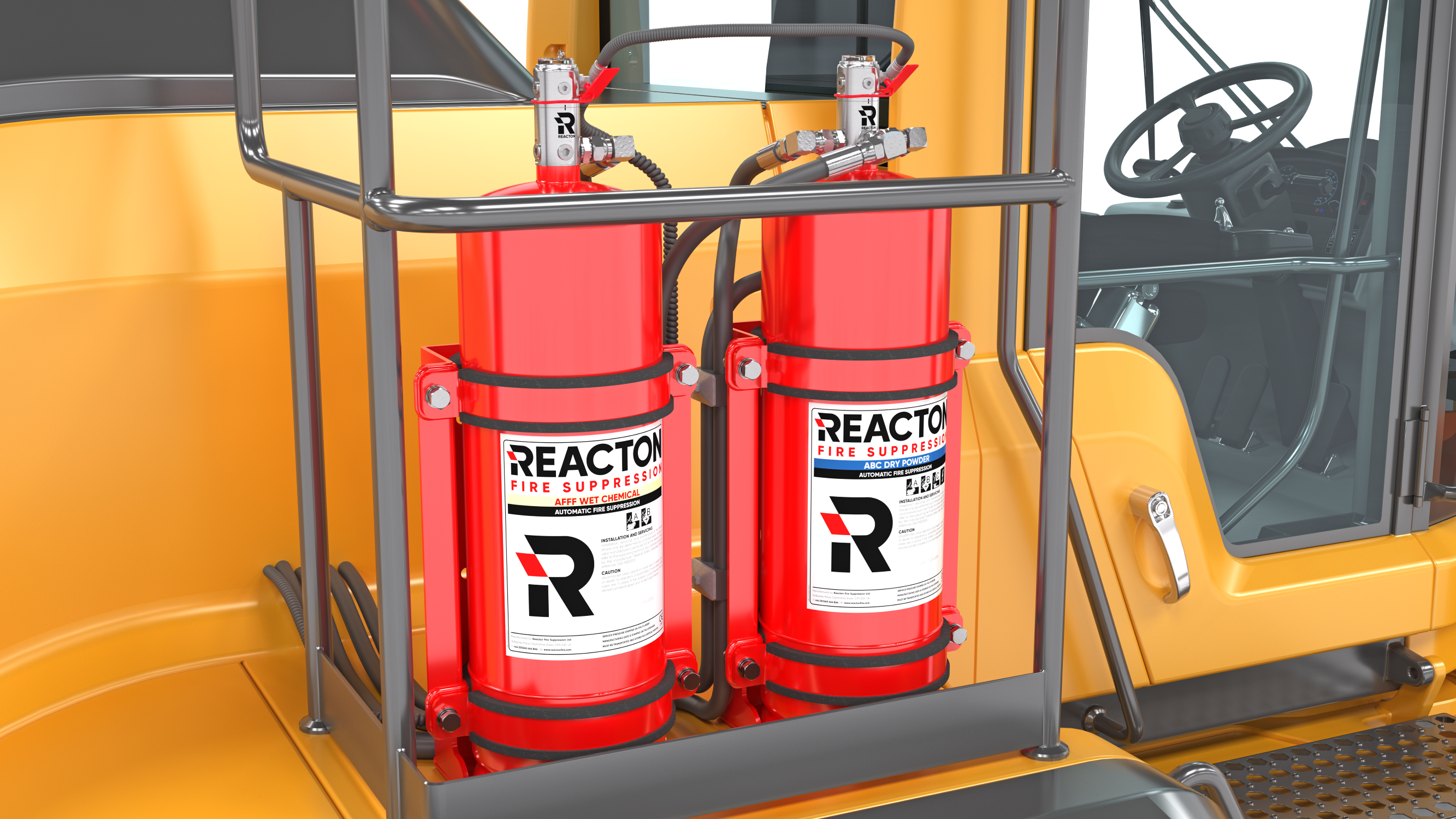
Engine fires in plant and heavy vehicles are an increasingly common and expensive occurrence. In the US alone, $225 million of damage is caused to industrial and agricultural vehicles every year.
With 62% of these fires starting in the engine bay and a readily available solution in automatic fire suppression, there’s no wonder that some insurance companies are starting to insist that accredited systems are installed as a condition of their policy cover.
When faced with the sheer brutality of the damage caused by plant fire in terms of loss of equipment and downtime, the decision to install automatic fire suppression should be straight forward, as should be selecting a Dual Agent system.
Dual Agent systems combine the individual features of Dry Powder and Wet Chemical (liquid system) into one extremely effective solution, providing outstanding fire protection for plant and heavy equipment that is critical to keeping operations running. These systems provide the rapid flame knockdown of Dry Powder with the cooling and blanketing properties of Wet Chemical to prevent re-ignition. Dual Agent systems are also very economical and 40% smaller than those that are liquid only.
Take a tour of Reacton's Dual Agent system:
When selecting a fire suppression system, it's vital to make sure that the system you are considering can cope with the demands of the environment and asset it will be protecting. A fire suppression system for plant and heavy equipment, for example, must be able to withstand extreme vibration, ageing and corrosion.
Reacton Fire Suppression is currently the first and only company in the world to achieve the prestigious P-Mark SPCR 199 standard for heavy vehicle fire suppression. Awarded by RISE, the leading vehicle accreditation safety body, achieving the P-Mark SPCR 199 standard means that Reacton is unique in being able to offer an accredited Dual Agent fire suppression system that meets the stringent requirements demanded by the industries that rely on plant and heavy vehicles.
These Stories on Heavy Equipment Automatic Fire Suppression
Reacton HQ - UK and Europe
14 Baynes Place, Waterhouse Business Park, Chelmsford, Essex, CM1 2QX, UK
Reacton Americas
23335 N 18th Dr #140, Phoenix,
AZ 85027, United States
Reacton UAE
SIDRA Tower, Office 905,
Sheikh Zayed Road, Dubai, UAE
No Comments Yet
Let us know what you think